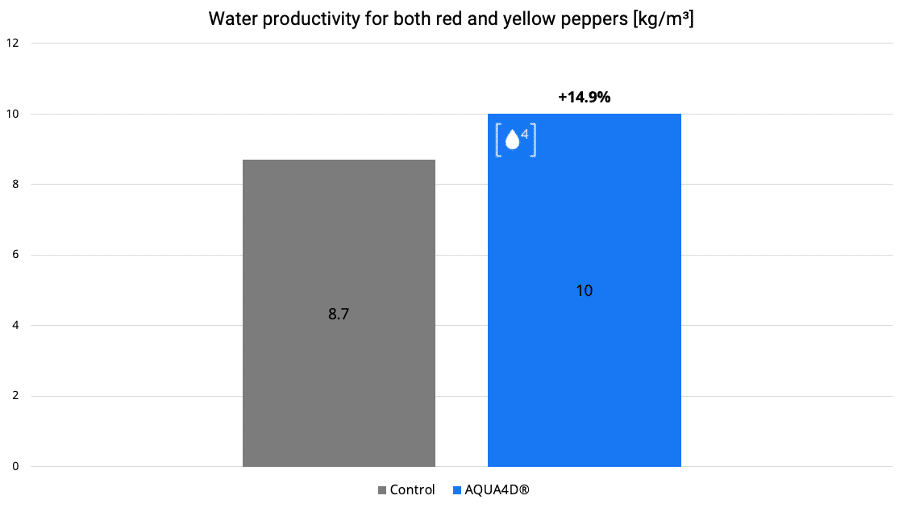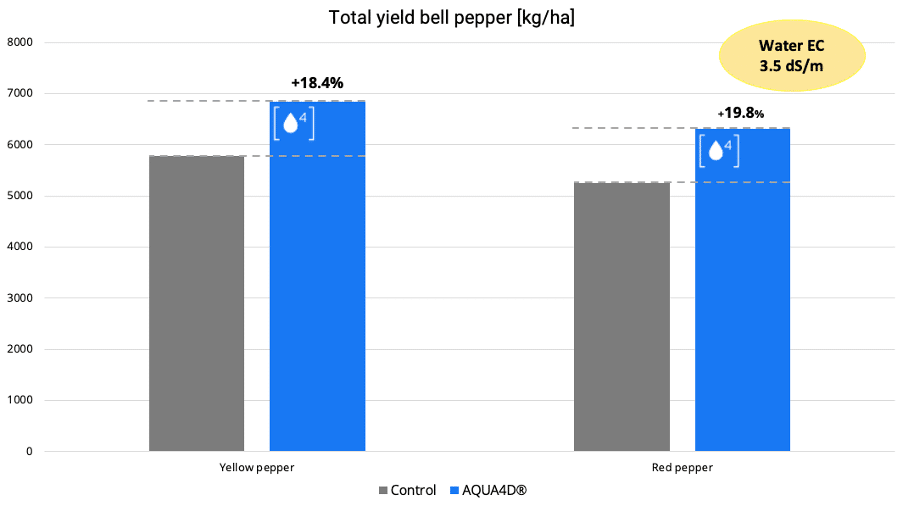This study was conducted as part of a USAID collaboration in Palestine. Below we summarize the academic article, which can be found in the Journal of Agricultural Science and Technology A 4 (2014).
Agriculture is one of the most important sources of work in the Lower Jordan Valley, making up 90% of its economic activity. Rich, fertile soils have played an important role in this, yet water scarcity remains an ever-increasing problem in the region. Annual rainfall levels are so low that farmers are obliged to irrigate fields using groundwater reserves to ensure a healthy crop. Over time, increasing demand for groundwater has left water reserves unable to replenish themselves, which has in turn dramatically increased the electrical conductivity of the remaining water from 1.8 dS/m to 6 dS/m between 1993-2013. As a result of this, growers have been forced to either grow crops that can tolerate higher levels of salinity or try solutions to overcome this issue.
In this paper, the authors investigate the effect of using AQUA4D® treated brackish water on bell pepper growth in the Lower Jordan Valley, as a more advantageous solution to overcoming increasing groundwater salinity. This pilot project, funded by USAID, took place during the 2012/2013 growing season. To design this experiment, the researchers randomly selected two plots of land measuring 1,200m² apiece, one where bell pepper crops were irrigated with the AQUA4D® treated water, and another for the control group, irrigated with untreated water. The electrical conductivity of the irrigation water was 3.5 dS/m. Furthermore, as the pilot project progressed, different volumes of irrigation were used in the AQUA4D® plot and the control plot depending on the stage of plant growth in each plot.
The results they observed were significant. Most importantly, the yield increased by 18.4% for yellow peppers and 20% for red peppers.
As a result of this, the water productivity also improved by 14.9% from 8.7 kg/m³ for the control group to 10 kg/m³ for the treated crop. Usually, the optimum irrigation water salinity for growing bell peppers is 1.0 dS/m and an increase to 1.5 dS/m would entail a yield reduction of 10%. Given that the irrigation water during this pilot project had an electrical conductivity of 3.5 dS/m, the yield increase achieved with AQUA4D® is a significant measure of its effectiveness.
Furthermore, the crops irrigated with AQUA4D® treated water produced 37% more bell peppers with four chambers than the control group, which is an indicator of higher quality. This also produced heavier fruit on average, from 211g to 233g. In addition to this, chlorophyll content increased by 33.3% from 7.5 mg/g to 10 mg/g. Overall, nutrient concentration also increased significantly in AQUA4D® treated bell pepper crops. For example, the concentration of magnesium increased from 676 ppb to 1,274 ppb, and the concentration of potassium also increased significantly from 38,930 ppb to 74,704 ppb. This increase could be down to a higher proportion of nutrients being absorbed via the roots. Finally, the bell peppers produced with AQUA4D® treated water stayed fresher for an extra week on average, amounting to about four weeks in total.
Find out more about this project here, in this video recorded during the installation process:
by Amer Marei, Dia Rdaydeh, Dia Karajeh and Nawaf Abu-Khalaf
Palestine
Water-Smart Agriculture
Precision Irrigation






